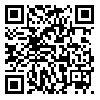Volume 4, Issue 2 (2024)
jpt 2024, 4(2): 185-199 |
Back to browse issues page
Download citation:
BibTeX | RIS | EndNote | Medlars | ProCite | Reference Manager | RefWorks
Send citation to:



BibTeX | RIS | EndNote | Medlars | ProCite | Reference Manager | RefWorks
Send citation to:
Salem M. Pathology of Culture Transmission in al-Fārābī Viewpoint. jpt 2024; 4 (2) :185-199
URL: http://jpt.modares.ac.ir/article-34-73786-en.html
URL: http://jpt.modares.ac.ir/article-34-73786-en.html
M. Salem *
Department of Philosophy and Theology, Faculty of Theology and Religious Studies, Shahid Beheshti University, Tehrarn, Iran
Abstract: (2044 Views)
Religion, philosophy, and language are inseparable and important elements of every culture. Suppose a culture is supposed to be transmitted from one land to another and the target culture is assumed to become sublime due to this transmission. In that case, its components should be transmitted correctly, consciously, and fully observed by the cultural guardians to provide the required contexts for the acceptance, establishment, and growth of rationality and religion in society. Otherwise, a serious conflict occurs between the supporters of the previous culture and the supporters of the imported culture. In his works, al-Fārābī, while explaining the formation of these components in human society and their relationship, explains the way of their transmission and makes a good pathology. According to al-Fārābī, philosophy is created by developing language skills and man's acquisition of syllogism techniques. Philosophy uses religion to establish laws in society and guide people towards happiness.
Article Type: Original Research |
Subject:
Philosophy of Science (Islamic)
Received: 2024/03/10 | Accepted: 2024/06/29 | Published: 2024/08/15
Received: 2024/03/10 | Accepted: 2024/06/29 | Published: 2024/08/15
References
1. Al-Farabi MIM (1910). What should first learn before studying Aristotle's philosophy. In: The collection of principles of ancient philosophy. Cairo: AL-MAKTABH AL-SALFIYAH. [Arabic] [Link]
2. Al-Farabi MIM (1974a). Plato's philosophy and parts and the order of parts from the first to the last. In: Badavi AR, researcher. Plato in Islam. Tehran: McGill University Institute of Islamic Studies. p. 3-27. [Arabic] [Link]
3. Al-Farabi MIM (1974b). Summary of Plato's Nawamis. In: Badavi AR, researcher. Plato in Islam. Tehran: McGill University Institute of Islamic Studies. p. 34-83. [Arabic] [Link]
4. Al-Farabi MIM (1983). The words used in logic. Mahdi M, researcher. Tehran: MAKTABAT Al-ZAHRA. [Arabic] [Link]
5. Al-Farabi MIM (1984). KITAB AL-JAM BYNA RA'YAI AL-HAKIMIN. Albir Nasri N, editor. Tehran: MAKTABAT Al-ZAHRA. [Arabic] [Link]
6. Al-Farabi MIM (1986). Al-Farabi commentary on Aristotle's On Interpretation. Kurtz Elisouei w and Maro Elisouei S , researchers. Beirut: DĀR ALMASHRIQ. [Arabic] [Link]
7. Al-Farabi MIM (1987b). AL-MUKHTAṢAR AL-SAGHĪR FĪ KIYFĪYAH AL-QIYAS. In: Danesh Pajuh MT, Marashi M, editors. Farabi's logics (Volume 1). Qom: Ayatollah Mar'ashi Najafi Public Library. [Arabic] [Link]
8. Al-Farabi MIM (1990). Al-Farabi's book of letters. Mahdi M, researcher. Beirut: DĀR AL-MASHRIQ. [Arabic] [Link]
9. Al-Farabi MIM (1991). KITAB AL-MILLAH WA NUṢŪṢ UKHRŪ. Mahdi M, researcher. Beirut: DĀR AL-MASHRIQ. [Arabic] [Link]
10. Al-Farabi MIM (1995a). The opinions of the people of Utopia. Bu Malham A, expositor. Beirut: DĀR WA MAKTABAH AL-HILĀL. [Arabic] [Link]
11. Al-Farabi MIM (1995b). TAḤṢĪL AL-SA'ADAH. Bu Malham A, expositor. Beirut: DĀR WA MAKTABAH AL-HILĀL. [Arabic] [Link]
12. Al-Farabi MIM (1996a). Science statistics. Bu Malham A, expositor. Beirut: DĀR WA MAKTABAH AL-HILĀL. [Arabic] [Link]
13. Al-Farabi MIM (1996b). The book of civic politics. Bu Malham A, expositor. Beirut: DĀR WA MAKTABAH AL-HILĀL. [Arabic] [Link]
14. Aristotle (1995). The complete works of Aristotle (Volume 1 & 2). Barnes J, editor. Princeton: Prinston University Press. [Link]
15. Bréhier E (1995). History of philosophy (Volume 1). Davoudi AM, translator. Tehran: Academic Publishing Center. [Persian] [Link]
16. Falaturi AJ (1975). Farabi's opinion about the exchange of cultures. In: Abu Nasr Farabi. Tehran: University of Tehran, Central Library. p. 51-59. [Persian] [Link]
17. Germann N (2021). Al-Farabi's philosophy of society and religion. Stanford: Stanford Encyclopedia of Philosophy. [Link]
18. Gutas D (1998). Greek thought, Arabic culture: The Graeco-Arabic translation movement in Baghdad and early 'Abbasid society (2nd-4th/5th-10th centuries). London: Routledge. [Link]
19. Khorasani Sh (2004). The first Greek philosophers. Tehran: Scientific and Cultural Publishing Company. [Persian] [Link]
20. Lenard PT (2020). Culture. Zalta EN, editor. Stanford: The Stanford Encyclopedia of Philosophy. [Link]
21. O'Leary DLE (1979). How Greek science passed to the Arabs. London: Routledge Kegan & Paul. [Link]
22. Plato (1997). Plato complete works. Cooper JM, Hutchinson DS, editors. Indianapolis: Hackett Publishing Company. [Link]
23. Plato (2001). The complete works of Plato. Lotfi MH, Kaviani R, translators. Tehran: Kharazmi. [Persian] [Link]
| Rights and permissions | |
 |
This work is licensed under a Creative Commons Attribution-NonCommercial 4.0 International License. |






